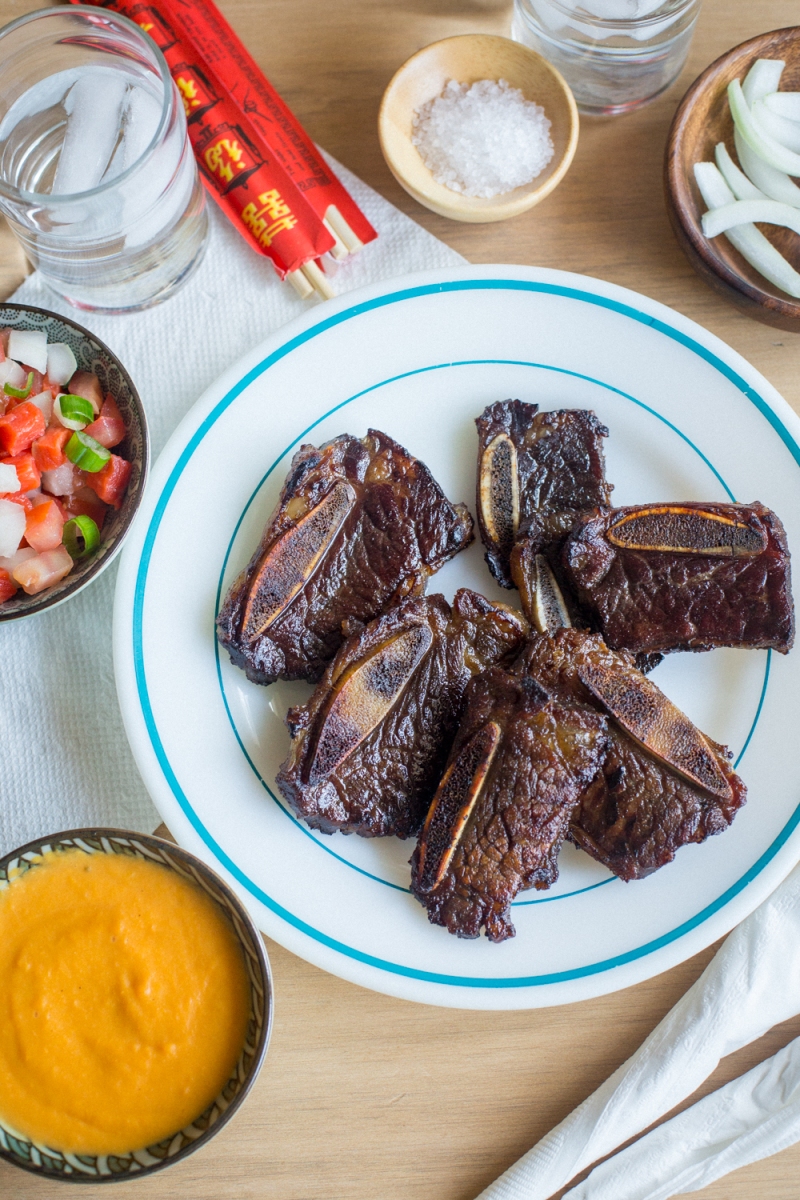Hawaiian Beef Soft Jerky Pipikaula Poke

Pipikaula, like many dishes in Hawaii, is the result of several cultures colliding. First, let's talk about how beef became part of the Hawaiian diet, since cows are not native to the islands. In 1793, famous British Navy explorer George Vancouver gifted King Kamehameha I (the chief who first united the Hawaiian islands) a bull and five cows; the king placed a kapu (Hawaiian taboo) on the hunting of these cattle and their descendants that lasted through 1830; by 1845 there were an estimated 25,000 feral cattle on the big island of Hawaii.
John Palmer Parker, an American who allegedly first arrived in Hawaii in 1809 by jumping off of a ship (there's probably a good story there), quickly gained the favor of King Kamehameha I upon his infamous arrival. In 1815, after a bit of travel, he returned to Hawaii with a state-of-the-art American musket; the king gave him the honor of hunting the first cattle in Hawaii. Over the next 20 years, he helped to thin the number of feral cattle on the island, and was gifted some land as compensation. Parker founded Parker Ranch in 1847, one of the oldest and largest ranches in the United States, with 250,000 acres that remain today.
To help manage livestock, Parker brought in cowboys (Vaqueros) from present-day California (Mexico at the time); these cowboys were called Paniolo (a Hawaiian pronunciation of the word "Español"), and the name sticks today. The Paniolos would dry strips of beef in the sun, to chew on while driving cattle; this food was eventually named Pipikaula (literally "beef rope"). To flavor the beef, they would use soy sauce, as it was locally available thanks to Chinese and Japanese immigrants.
So that's how Pipikaula came to be, through a joining of Hawaiian, British, American, Mexican, Chinese, and Japanese cultures. Today, Pipikaula is served in Hawaiian restaurants and sometimes at luaus. It is commonly dried in wire boxes in the sun, or by hanging it to dry, then broiled or pan-fried before serving. The recipe that I'm sharing today is modeled after my wife's favorite Hawaiian restaurant, Helena's Hawaiian Food, on N. King Street in Honolulu. For efficiency's sake, we'll dry the beef in an oven and pan-fry it to a crisp.

Pipikaula (Paleo, Primal, Gluten-free, Perfect Health Diet)
Marinade:
4 cloves garlic, minced
1″ ginger, peeled and minced (or 1 tsp ground ginger)
1/2 cup tamari or 2/3 cup coconut aminos
2 tbsp coconut palm sugar or 3 tbsp honey
1 tbsp Hawaiian salt (or sea salt)
1/4 cup mirin, sake, or other rice wine (dry sherry okay)
2 tsp white pepper
1 tsp red pepper flakes
1 tsp Tabasco sauce or other hot sauce
4-5 lbs cross-cut short ribs or flank steak, cut into thin strips
2 tbsp coconut oil
1. Combine the marinade ingredients. Cut the short ribs between each bone piece, to form 2″ long pieces. Combine the short ribs and the marinade in a resealable plastic bag and refrigerate for at least 6 hours, overnight preferred. Turn the bag periodically.
2. Preheat your oven to 170F. Lay the short ribs across a baking sheet lined with a cooling rack (you can also line the sheet with tin foil to make it easier to clean). Bake in the center of the oven, with the oven door cracked open a few inches, until mostly dry (a bit wetter than beef jerky), about 6 hours.
3. Store in the fridge, in a resealable plastic bag lined with paper towels, for up a to week. To serve, heat the coconut oil in a skillet over medium heat for about 2 minutes, then add the Pipikaula; pan-fry until browned and the fat starts to render (similar to how bacon looks as it finished cooking), about 1 minute per side, then drain on paper towels and serve.
** Common accompaniments to Pipikaula include sliced sweet onion, coarse-ground Hawaiian salt, Lomi Lomi Salmon, Kalua Pig, and Poi (here is my recipe for Sweet Potato Poi).
** Cross-cut short ribs are sometimes hard to find, and can carry all sorts of names, from flanken cut, to LA style. Here is a good guide on the different short rib cuts.

Previous Post
Deep Dish - Season One
Source: https://thedomesticman.com/2016/05/31/pipikaula/
Post a Comment for "Hawaiian Beef Soft Jerky Pipikaula Poke"